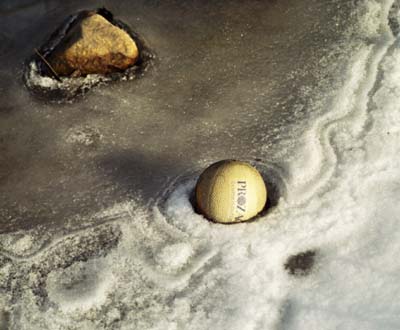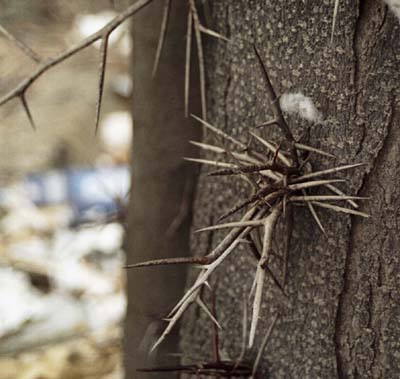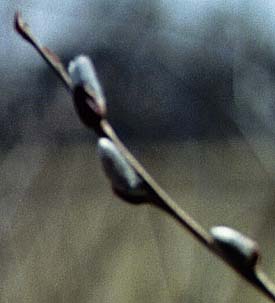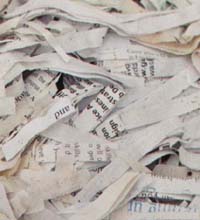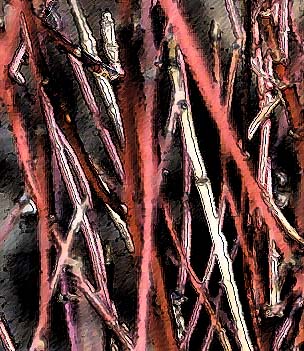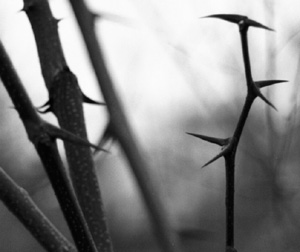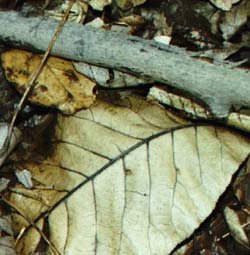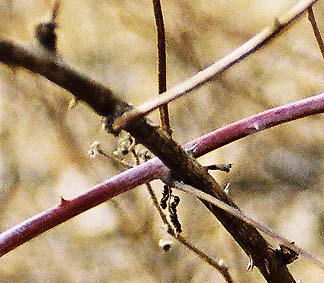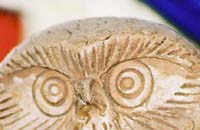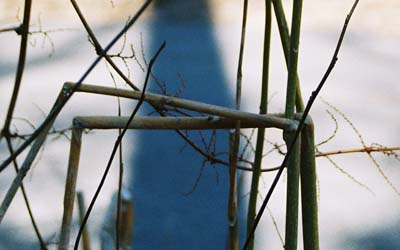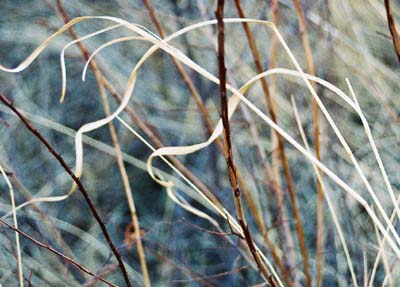
Could the elusive, melancholy song with the line
I sit alone in a waystation be Randall Thompson's "The Passenger" ?
It's from 1957, one of five love songs for baritone and piano, so the voice is right. The title's ringing the faintest of bells, a half-heard windchime in a barely palpable breeze. There's a recording of it, for which I've sent.
I've been thinking about the past. Thinking about how much of my life -- how many memories -- I've thrown into poems. I could arrange them chronologically and make an autobiography out of them. It's all very retro and uncool, all very pre-pomo and
ewww, confessional, I know.
But I'm a poit, not a poet, and have no obligation to any theory of poetics. These verbal constructions of mine, these poem-like artifacts, are primitive, autodidactous; my shadow life, a heavily photoshopped slide show of my trip through this vallombrosa -- inherently fascinating to me, dull as, well, toast to others. Yawning is allowed, encouraged even, contagious.
Here's Raul.
Duodenum
Daddy had a duodenal
ulcer back in ‘61
when they were as de rigeur
as black hornrims and whifflecuts.
Dr. Tom prescribed a diet
(day old toast in heavy cream
with Aludrox and Miltown chasers)
and a hobby. So our tract house
gushed with oils -- tirades of flowers,
churning seascapes, moody clowns,
a few Pollocky drop-cloth abstracts
that Mommy wouldn’t let him hang.
Then came his mosaic phase.
Our surfaces grew Byzantine.
He crazy-tiled the coffee table,
TV, bureaus, mantelpiece,
the windowsills and countertops
and had plans for the patio
but realized that his burning foregut
was cool, man, cool -- Oh, Daddy-O --
it purred as softly as gray flannel
for fried eggs, bacon, coffee, T-bones,
dry martinis, Lucky Strikes.
So Daddy sheathed his pallette knife,
rejoined us at the common sirloin
back from his Gethsemane.
Scales of grout flaked off his fingers
and his eyes. He looked around.
His moon-faced daughter, silent wife
sat in shrines of glinting fracture
anointed with burnt umber, scarlet.
He felt sheepish. Rats and arms raced
round and round God’s lofty deathbed,
Communists walked Patton Street
in broad daylight ! His gut was quiet.
What could he do but pray for migraine ?
Memories, dreams and poems are like rooms. Arrangements of images and, in the case of poems, words and sounds, in timespace. Memories and dreams are private rooms. A poem is a public room, a room that appears different to everyone who enters it. And yet we can cohabit it, companionably.
Now here's my dear mother, the exquisitely anagrammed Camelia Vorring. The remembered object that sparked this poem is a skirt -- long, polished cotton, with black, pink and gray stripes. It was my mother's, and I played "dress-up" in it as a child. Plus some honeymoon photos. If you look closely at the poem, you will see my face before I was born. There, in the lower right hand corner.
The Origins Of Skirt
In the last hours of my bloodless néant,
outside Québec City’s battlements,
where an ordinary nuptial June
frothed in the postwar luxe et calme,
a woman in a full, lustrous skirt,
(coral, jet and silver-gray, its waist
so tiny it would nip a thick child jalouse)
scaled a hill, a barrow mound of stones,
each ovate, palm-sized, dull and river-smoothed.
A camera tracked her climb.
Six photos document the doomed ascent.
In stiff-soled lune-de-miel sandals
she skids up the cobbled, man-made dome
smiling at an implicit, adoring eye.
The lovely skirt balloons, unwraps
a startled O O of kneecaps, a slight
indrawn gasp of thigh. And then
she twists away as if strafed, thrashes, flails,
swats. He snaps and snaps. Her round eyes fill
with bombazine panic, pain, hate, néant.
The Kodak blanc-et-noir omits the hot
pink of skirt and welt, and how,
across the droning gulf of afternoon,
forty six chromosomes, a perfect 50’s His and Hers,
waved their arms and crossed their legs.
On the sixth photo, the one I call
Mother Seated Upon Cairn, Weeping ,
my father footnoted a fat hymenopteran,
in broad cartoonish stripes, piqûre en garde,
the bee-de-miel, leering, bumbling in.
Needless to say, a memory, that icon of pastness, is a mutable event that transpires wholly in the present. Memories fade, sharpen, change, disappear, arise de novo, get implanted -- it's a wonder human personalities cohere at all.
Commenting on my Love Letter post below,
Dale calls writing a form of "clasping." What a great word. Clasping -- holding, gathering together, connecting, bundling, embracing.
I love how it subtly differs from clinging. It's looser, more provisional, spacious, temporary. The rope around a bundle of sticks rots; the sticks fall away.
I do think my writing has always been an attempt to fix the past. To fix it as in correct, revise, reshape. And to fix it as in freeze or preserve. There's both clasping and clinging involved. And dissemination: the wish to imprint simulacra of myself into the minds of others, an act of self-amplification and connection.
It's all very naive and primitive, fit for archiving in a dusty annex of
The Museum Of Bad Art (MOBA)*.
*I've been there. It's all it promises, and more.





